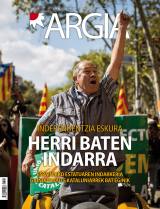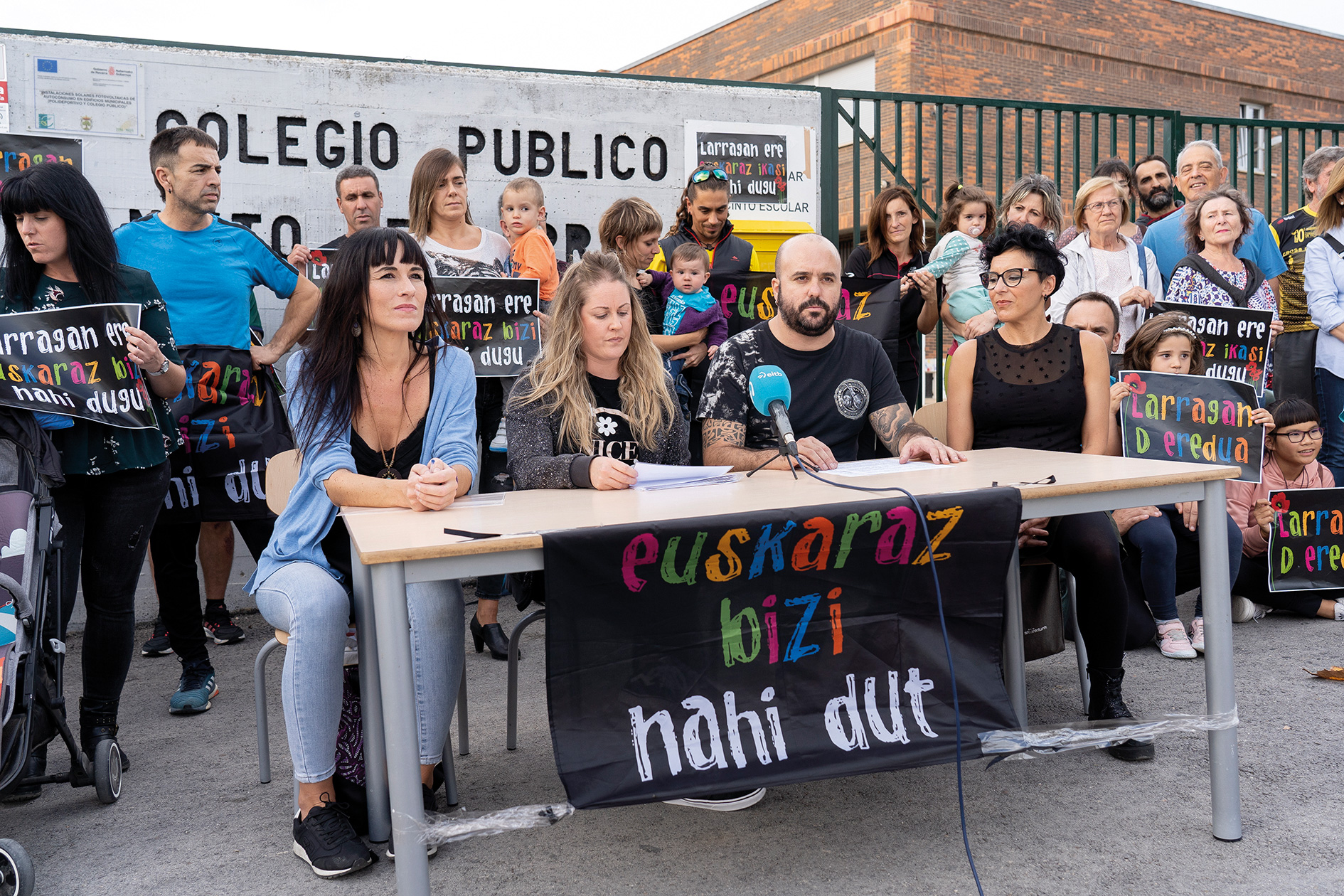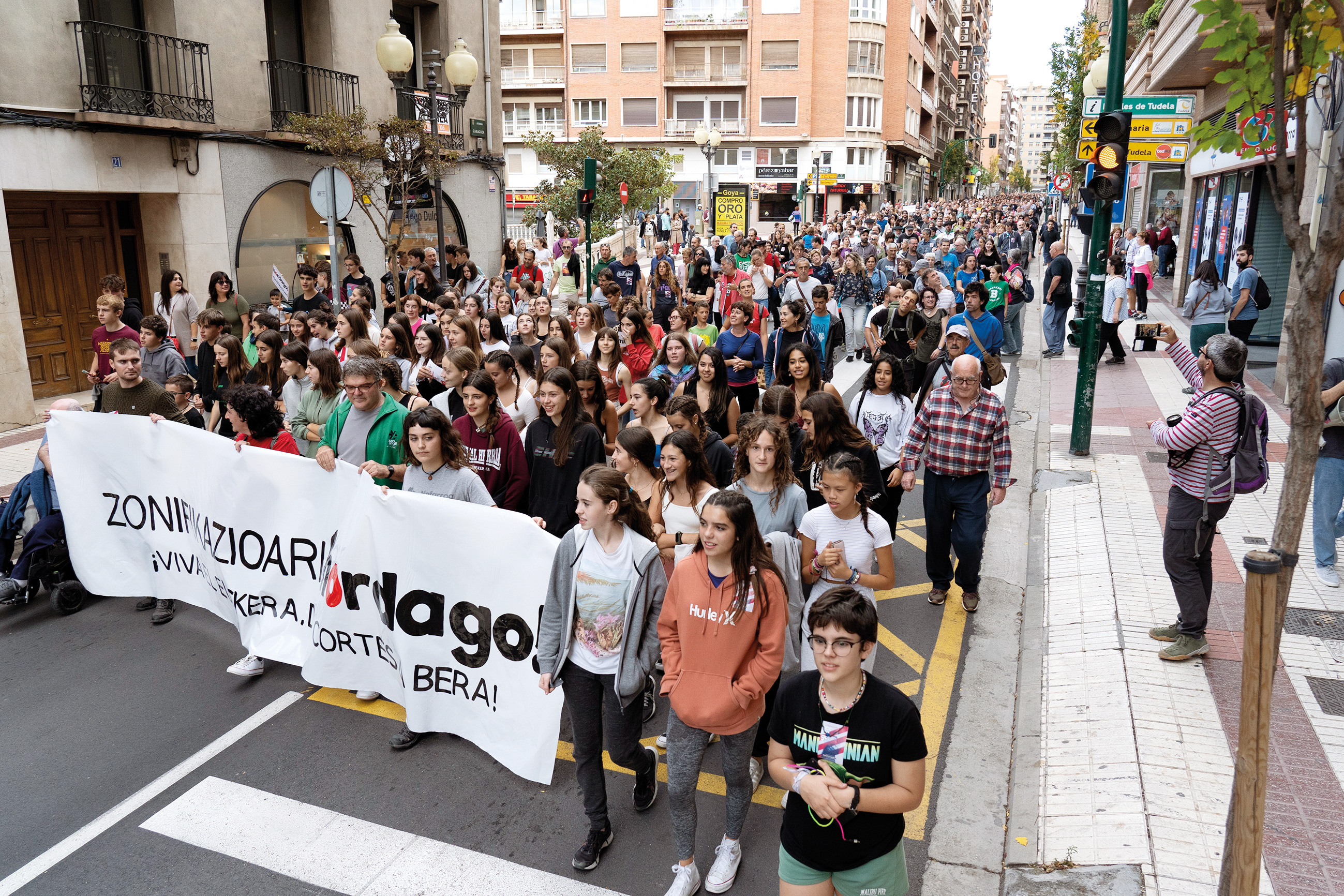Sustainable school as an objective
- In the final section of the preparations for Nafarroa Oinez we have surprised the Ikastola Tantirumairu of Lesaka and its director, María Luisa Etxeberria. We have asked you about the projects that are in place at the centre in the area of sustainability.
Tantirumairu is a small ikastola, which welcomes about a hundred young people from Lesaka and teaches Elementary Education. Being a village situated in a natural environment, it could be thought that the children of the place would have enough sensitivity and knowledge about environmental care. But it's not always that way. “The fact that they are village children does not guarantee that they know the plants and trees in the area and are sensitized to nature conservation,” Etxeberria explained.
Since its inception, one of the pedagogical axes of ikastola has been the sensitization and treatment of the environment. The commitment to sustainability has been based more on daily work than on one-off actions. “We educate children here to be agents of society. We want to work that facet of agent, and for that also in the environmental issue we have to go deep, we cannot stop in appearance by organizing a spectacular punctual action,” says the director. Thus, Tantirumairu has several lines of awareness towards the knowledge and care of nature, recycling, dining room, garden and compost.
The first step towards respecting
them would be for boys and girls to know their plants and trees and the elements of nature that surround them. To do so, they organize Nature Week each year: “All the members of the Ikastola dedicate all week to this issue, as a monograph. We go to the mountain, we collect the leaves, we classify them and then the older ones, as the theme works more, transmit what they have learned to the younger ones.” Boys and girls study and learn to differentiate the different ecosystems they have in the village, such as those on the mountain and those on the shore. “To preserve the environment it is necessary to know it, to live it before. Then comes custody,” says the director.
When students started working with recycling in the
community, students took the topic to the ikastola and put a lot of strength to work with boys and girls. The recycling rates in the village were low and Etxeberria tells us that they tried to change the habits of the households through the children: “The head of waste from the community was coming, worried about the issue and passed it on. It taught us to bring waste and recycle with dynamics with students.” The information worked in class was sent home and the children were asked to look at the recycling habits of the households. “We know that many gave tobacco in the houses with this issue,” the director explains.
Little by little, in Tantirumairu they have also become drivers of recycling in their environment. An example of this is the initiative proposed by the students of two or three years ago: as the trash cans of the patio were of a single container and could not be recycled, the young people made a request to the City Hall, who put them colored trash in the patio.
In the dining room kitchen there were also changes in the students. “When we started recycling, the students realized that yogurt pots were not recycled in the kitchen. They started to help cooks and pick them up in extra bags,” Etxeberria tells us. The Director is clear, however, that despite taking important steps, the issue has to be constantly addressed, as with the new course older students leave and incorporate new ones.
Tantirumairu’s sustainability projects include
the transformation of the dining room kitchen and the progress towards sustainable food. Students prepare all the food for their meals and gradually work to introduce local products and organic food. “It was an important step, for example, for all the fruit given to children at breakfast and in the lunchroom meals to be eco-friendly,” said the director. There is a group of its own to work on the food in the dining room, and gradually changes are being made in the menu. “There are not so many producers in the area and it is not easy to get some products from the area. But we are in that process.”
About three years ago, we
launched the garden of the ikastola. It’s a small orchard, but it gives us the opportunity to cultivate the land.” The goal of the project is to bring children to the garden world, to see the land, to touch it. Although there are many families in the village that have gardens and know their students, the principal believes that it is different to act directly. “Being them is something else with the whale and working as a team. It is suitable to ignite the worm, to have contact with the earth.”
In relation to the garden project, they also make compost in the ikastola. When they started working on recycling, they began to compost, when the Commonwealth gave them the composting. “The residues of lunch, fruit husks and organic food produced in the kitchen are collected and the students, at recess time and after eating, take everything to the composter”. Student groups work alternately, with the help of a teacher. They mix the compost, add dried leaves and use it to pay the orchard when it's ripe.
María Luisa Etxeberria makes a positive assessment of all these initiatives launched, as she observes that changes are taking place in the activity of students and in the attitudes of everyday life. Along the way, the attitude of teachers has been very important: “All these tasks would be impossible if the faculty were not sensitized and involved with the theme”. Looking forward? “One of our goals is to expand the garden and organize it better. Let’s see if we can get something out there to the kitchen.”
Lizarra Ikastolaren laugarren Nafarroa Oinez izanen da aurtengoa. Erabat berezia, egoerak hala aginduta, baina bereziki alaia pandemia osteko lehena delako larunbat eta igandean eginen den festa. Lizarra Ikastolara joan gara irratsaio berezia egitera eta handik pasatzeko... [+]
3,5 kilometro luze eta lau gune dituen ibilbidea prestatu dute eta hainbat ekialdi izanen dituzte igandean.
Nafarroako Ikastolen Elkartearekin eta aurtengo Nafarroa Oinez antolatu duen Tantirumairu ikastolarekin batera, 2015ean suten batek kiskalitako herri lurrak basoberrituko dituzte.

























